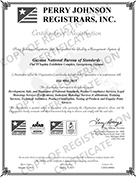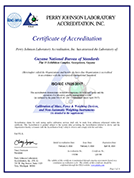In an ever-changing economy, many businesses are seeking ISO certification in the aim to build customer confidence as well as streamline their own systems and save on time. The GNBS, through our Business Support Services Department, has made note of this and the fact that guidance is necessary, especially in determining which Standards need to be implemented for specific types of businesses. This is underscored even more as Guyana heads further into becoming an oil producing state and opens its borders to regional and international businesses and organisations.
As the National Standards Body (NSB), it is our responsibility to ensure that all stakeholders become aware of the different Standards applicable to their operations, and the benefits of same once implemented.
Because there are over twenty-three thousand such standards, we will only provide information on the most popular ones, some of which you may be familiar. However, we will take a look at some preliminary terms in the first part of this series.
ISO and Standards
International Organisation for Standardisation, abbreviated and better known as ISO, is an independent, non-governmental international organization with a membership of 165 National Standards Bodies. Through its members, it brings together experts to share knowledge and develop voluntary, consensus-based, market relevant International Standards that support innovation and provide solutions to global challenges. The ISO Central Secretariat is located in Geneva, Switzerland which coordinates the system and runs its day-to-day operations. The Secretariat is overseen by a Secretary General.
ISO began in London in 1946, where 65 delegates from 25 countries met to discuss the future of International Standardization. In 1947, ISO officially came into existence with 67 technical committees (groups of experts focusing on a specific subject).
ISO membership is a network of National Standards Bodies that represent ISO in their country.
ISO membership comprises of three categories – (1) member bodies, (2) correspondent members and (3) subscriber members. Countries which are member bodies or full members influence ISO standards development and strategy by participating and voting in ISO technical and policy meetings. They also sell and adopt ISO international standards in their respective nations.
Correspondent members (such as Guyana) observe the development of ISO standards and strategy by attending ISO technical and policy meetings as observers. Correspondent members which are national entities sell and adopt ISO International Standards nationally. Correspondent members in the territories that are not national entities sell ISO International Standards within their territory.
Subscriber members keep up to date on ISO’s work but cannot participate in it. They do not sell or adopt ISO International Standards nationally.
Individuals or companies cannot become ISO members. Should you desire to participate in standardisation work there may be opportunities to do so at the national level.
[information as taken from the ISO official website]
What or Who are National Standards Bodies?
A National Standards Body (NSB) exists to meet the standardisation needs of the country concerned.
The GNBS is Guyana’s National Standards Body where we represent Guyana’s economic and social interests at the level of the international standards organisations. We are here to assist our economy through the knowledge and provision of standards which help to improve the quality and safety of products, services and systems. The GNBS publishes on average twenty standards annually. Prior to release these standards we collaborate through the engagement of industry experts, government bodies, trade associations, business (all sizes) and consumers to develop standards as well as adapt.
The British Standard Institute (BSI) in the UK was the first National Standards Body to be created.






